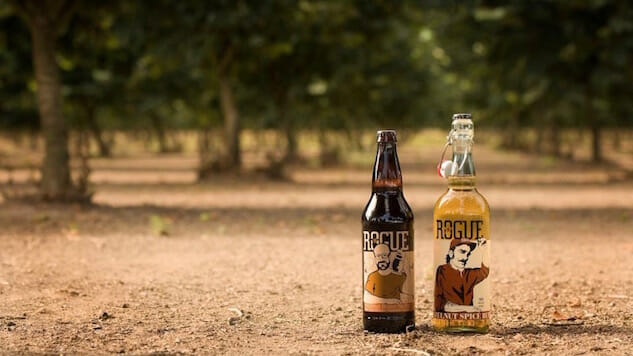7 Questions for Rogue Ales and Spirits
Photo via Rogue
Founded in 1988, Rogue has made a name for itself by doing it their own way. Sometimes that means a crisp and delightful pale ale like Dead Guy, sometimes it means something unheard of, like a beer that uses wild yeast strains from a brewer’s beard (Beard Beer). As the latter shows, Rogue is a different brand that’s managed to remain creative and unconventional while growing large enough to distribute to 50 states and 54 countries.
Based in the fishing town of Newport, Oregon since 1989, the company has grown and changed leadership over the last 28 years. President Brett Joyce, son of co-founder Jack Joyce, shares how the company has maintained its small business feel while aiming big, ranking as the country’s 35th largest craft brewery in 2015.
Paste: One of the things that has struck me about Rogue is how you play with different ingredients and do a lot of one-offs. How do you define when it’s a good time to go to a different ingredient?
Brett Joyce: Those projects tend to happen naturally. We call it a collision. It comes from the spirit of creativity and innovation as it hits us. The two most obvious examples of those collisions are Voodoo Doughnuts and the one with Sriracha hot sauce last year. We think about what other brands are doing fun projects and is there a way to combine or collide our brands with theirs. That’s the genesis. It’s probably less strategic than people might give us credit for. We try not to force it. It’s hard to describe—not random—but it has to be magical for us to do it. If it’s not fun for both parties and doesn’t make us smile, then we’re not going to do it.
Paste: How much testing goes into them? You bottle and distribute while most beers of this nature are taproom only or very limited?
BJ: When you’re dealing with funky ingredients there is lots of trial and error. We go through many rounds and test batches and iterations to get them where we want them to be.
Paste: Where do you draw the line between creativity and gimmickry? It feels that gimmickry is an issue in the industry as a whole.
BJ: It’s like I was getting at earlier: it’s got to be fun and creative—especially if it’s truly unique. It’s hard to do something that’s never been done, because there’s lots of copycat stuff. Does it fit the spirit of Rogue: does it dare, does it risk, does it dream, does it take chances? It’s got to check those boxes for us. Whether it’s creative or gimmickry, that’s for the consumers to decide. The feedback from consumers and retailers has been overwhelmingly positive. I think they can feel that we’re working closely with other kindred spirits. We’re establishing friendships and partnerships with businesses that are like us.